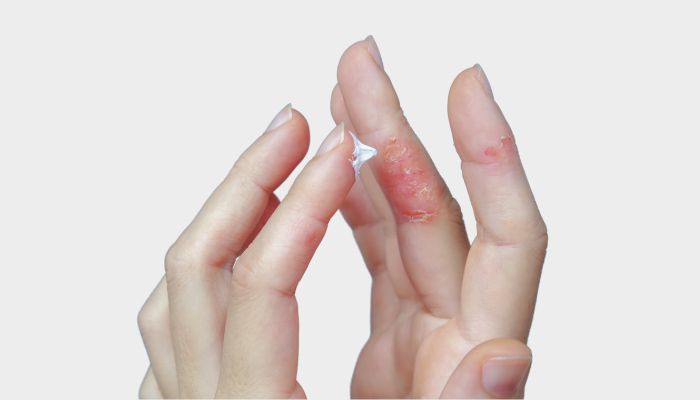Eczema, a chronic skin condition characterized by dry, itchy, and inflamed skin, can be especially challenging during the winter months. The cold weather, low humidity, and indoor heating often create the perfect storm for flare-ups, leaving many eczema sufferers struggling to keep their skin comfortable. If you’re among the millions affected, don’t despair—with the right strategies, you can minimize winter eczema and keep your skin healthy and happy. Here’s a comprehensive guide with expert advice to help you banish winter eczema.
Table of Contents
Understanding Winter’s Impact on Eczema
Winter creates a unique set of challenges for those with eczema. Cold air and indoor heating combine to reduce humidity, drying out the skin and making it more prone to irritation. Moving between the chilly outdoors and warm indoor spaces exacerbates this sensitivity, leading to increased discomfort. Additionally, heavy clothing, such as wool or synthetic fabrics, can rub against the skin, triggering flare-ups in eczema-prone areas. Even comforting hot showers, a staple of winter routines, strip the skin of its natural oils and worsen dryness. Understanding these factors is the first step in mitigating the seasonal impact on eczema.
Signs of a Winter Eczema Flare-Up
Winter eczema manifests through several recognizable symptoms. Dryness and flaking become more pronounced, often accompanied by intensified itching. The affected skin may appear red, inflamed, and develop cracks or fissures, making it more susceptible to irritation. Sensitivity to fabrics and skincare products also tends to increase, leaving skin feeling raw and uncomfortable. By identifying these signs early, you can take proactive measures to prevent flare-ups from worsening.

Building a Winter-Proof Skincare Routine
Building a winter-proof skincare routine for eczema involves a thoughtful approach to managing dryness, irritation, and flare-ups. The cold winter air and indoor heating can strip the skin of moisture, making it more prone to eczema flare-ups. Here’s how to protect and soothe eczema-prone skin during winter:
Choose a Gentle Cleanser: Select a mild, fragrance-free cleanser that preserves your skin’s natural oils, and minimize the use of soaps that can be drying. Always wash with lukewarm water, as hot water can worsen dryness and irritation.
Moisturize Immediately: After cleansing, apply a rich, emollient moisturizer while your skin is still damp to lock in moisture. Look for products with ingredients like ceramides, hyaluronic acid, and glycerin. These help repair and strengthen the skin’s protective barrier, preventing moisture loss. Ointments or thick creams are more effective than lotions for eczema-prone skin, as they create a protective layer to seal in hydration.
Avoid Harsh Triggers: Protect your skin from irritants known to trigger eczema flare-ups, such as wool fabrics, harsh soaps, and certain skincare ingredients like alcohol and fragrances. These can dry out or irritate the skin, making eczema symptoms worse.
Use Sunscreen: Even in winter, UV rays can irritate sensitive skin, so make sure to use a broad-spectrum sunscreen when spending time outdoors. This will help protect your skin from further damage.
Treat Itchy Skin: When itching occurs, resist the urge to scratch, as this can worsen irritation and damage the skin. Instead, apply more moisturizer or a topical treatment as recommended by your dermatologist to soothe the area.
Warm Baths: A warm bath can be soothing for eczema, but avoid hot water, which can dry out the skin. Add colloidal oatmeal or bath oils specifically designed for eczema to help moisturize and calm irritated skin.
Optimizing Your Environment
Creating a skin-friendly environment can significantly reduce the frequency and severity of eczema flare-ups. Using a humidifier to maintain indoor humidity levels between 40-60% can counteract the drying effects of indoor heating, while certain houseplants, like peace lilies, can naturally increase moisture levels in the air. Keeping your home’s temperature consistent and avoiding overheating prevents dry, stagnant air from exacerbating symptoms.

Lifestyle Changes for Long-Term Relief
Incorporating lifestyle changes into your routine can greatly enhance your ability to manage eczema over time. A balanced diet rich in anti-inflammatory foods—such as salmon, walnuts, flaxseeds, berries, and leafy greens—supports healthier skin. Staying well-hydrated by drinking plenty of water helps maintain skin moisture from within. Since stress is a common eczema trigger, adopting relaxation techniques like mindfulness, yoga, or deep breathing exercises can be beneficial. Prioritizing restful sleep is equally important, as it promotes skin repair and overall well-being.
Additionally, monitoring weather conditions and preparing accordingly by applying extra moisturizer and dressing in protective clothing helps shield your skin during harsh conditions. When selecting fabrics, opt for soft, breathable materials like cotton or bamboo. Avoid scratchy fabrics, such as wool, unless layered over cotton garments, and always wash clothing with hypoallergenic, fragrance-free detergents to minimize irritation.
When to See a Dermatologist
Sometimes, professional intervention is necessary. If over-the-counter remedies and home care fail to provide relief, or if flare-ups become severe, widespread, or accompanied by signs of infection like redness, swelling, or oozing, consult a dermatologist. Persistent itching that disrupts your daily life is another indicator that professional care is warranted.
Conclusion
In conclusion, managing winter eczema requires a combination of gentle skincare practices and lifestyle adjustments to keep your skin hydrated, protected, and calm. By using a mild cleanser, applying rich moisturizers, avoiding common triggers, and incorporating soothing treatments, you can help prevent flare-ups and reduce discomfort. Remember to listen to your skin and make changes to your routine as needed. If flare-ups persist, don’t hesitate to consult a dermatologist for personalized advice and treatments. With the right care, you can maintain healthy, glowing skin all winter long, free from the irritation of eczema.



